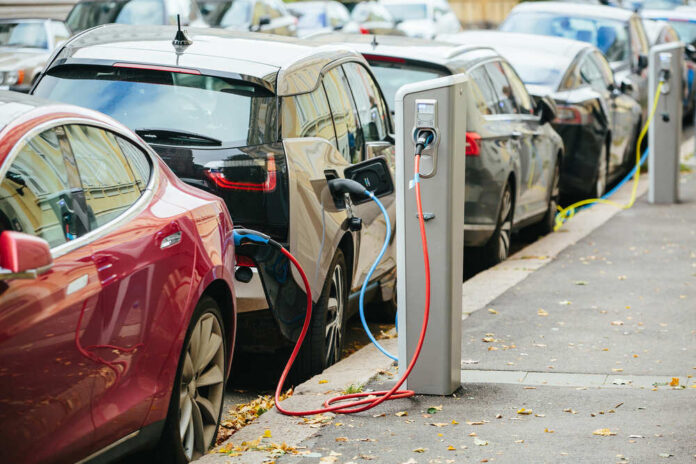
A comprehensive new study has exposed the hidden costs of electric vehicles (EVs), challenging the prevailing narrative that they are cheaper to run. The report from the Texas Public Policy Foundation, authored by Brent Bennett and Jason Isaac, contends that despite claims of lower maintenance and fuel expenses for EVs, the reality is quite the opposite.
The study notes that no one has fully accounted for the wide range of subsidies, regulatory credits, and infrastructure support that underpin the economic viability of EVs.
Bennett and Isaac go on to illustrate that, without $22 billion in government subsidies and incentives, the average 2021 EV would cost $48,698 more to own over a decade.
Taking these subsidies into account, the report suggests that EV owners effectively pay an equivalent of $17.33 per gallon of gasoline for their fuel.
The study highlights that U.S. car lots are inundated with “unsold EVs,” with Ford reportedly losing over $70,000 on each EV it sells.
Furthermore, the authors raise questions about the contributions of EV owners to the electric grid. While gasoline buyers fund the entire infrastructure for refining, transporting, and marketing gasoline, the report notes that it has never been determined how much EV owners contribute to the electric grid, including extra generation, transmission, and distribution costs.
NEW – True costs of fueling an electric vehicle, including excess charging costs and subsidies, is equal to $17.33 per gallon of gasoline, a new analysis found. https://t.co/SSSkctoMeO pic.twitter.com/B8fBGypSid
— Disclose.tv (@disclosetv) October 26, 2023
The study concludes that the real cost of EVs is far from being on par with internal combustion engine vehicles (ICEVs). Despite government officials and EV proponents downplaying these hidden costs, the report estimates that the average EV accrues $48,698 in subsidies and $4,569 in additional charging and electricity expenses over ten years, making the total cost $53,267 or $16.12 per equivalent gallon of gasoline. Without ongoing government support, EVs are likely to remain more expensive than ICEVs for the foreseeable future.














